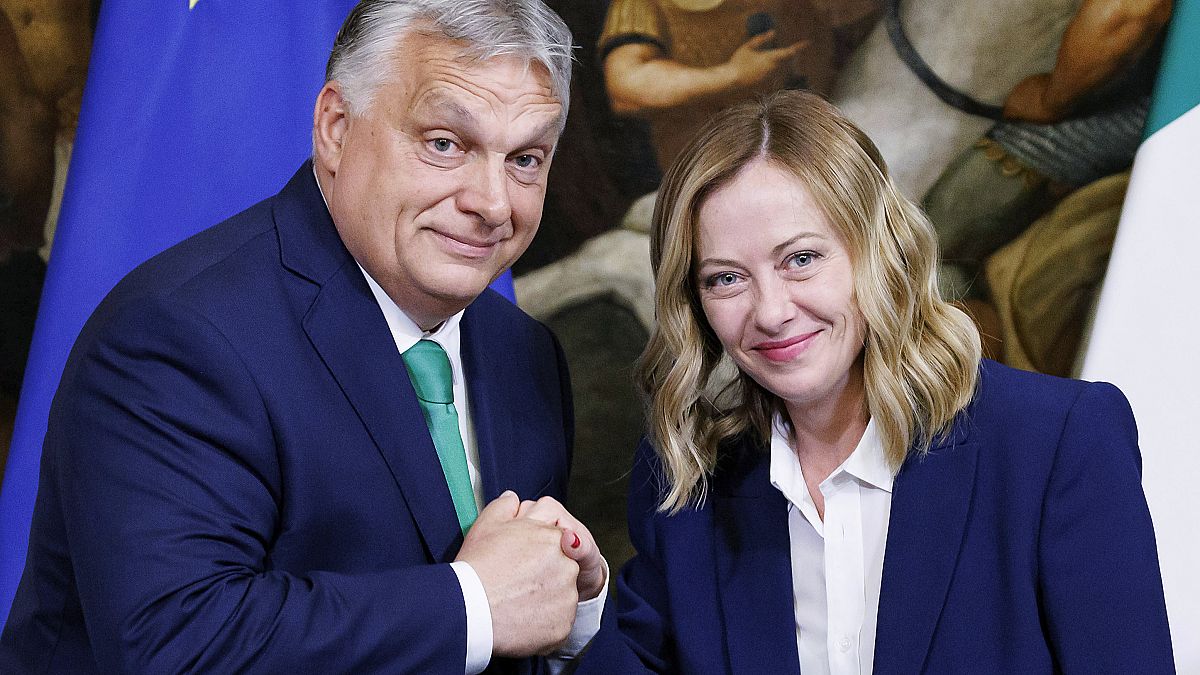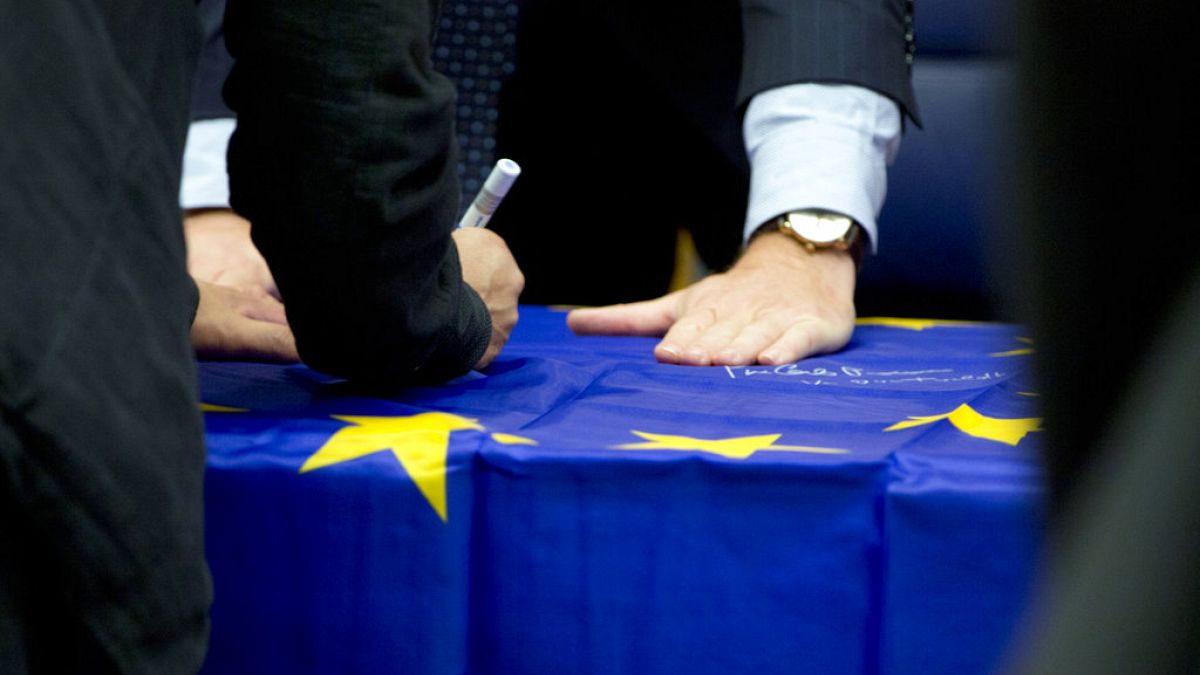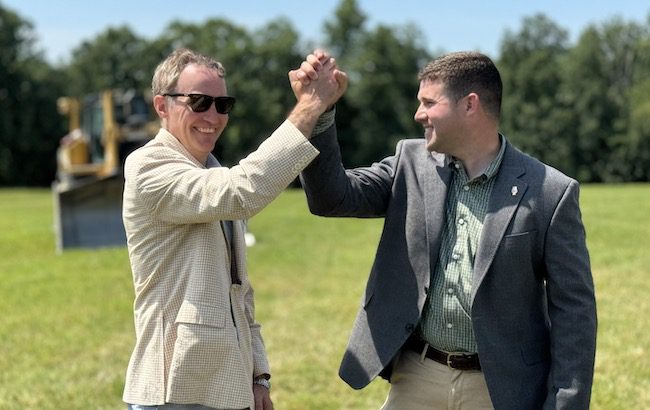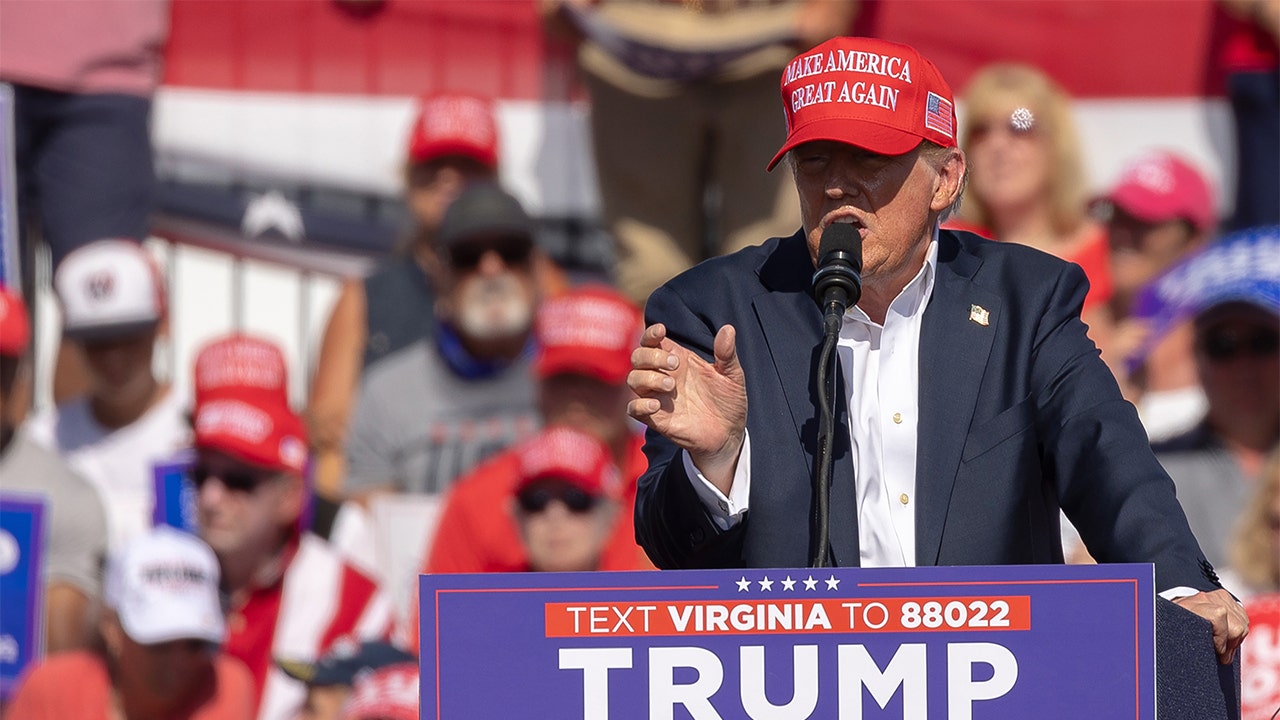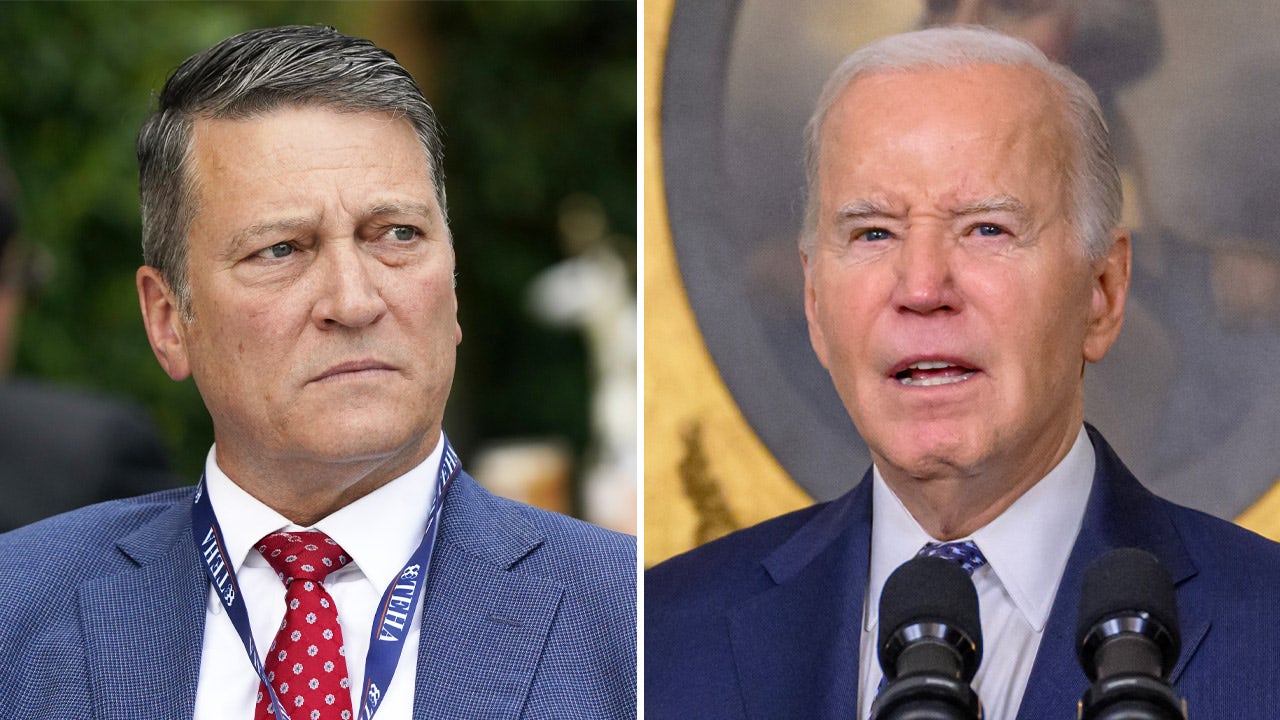World
Falling energy prices boost EU’s growth outlook, Commission says
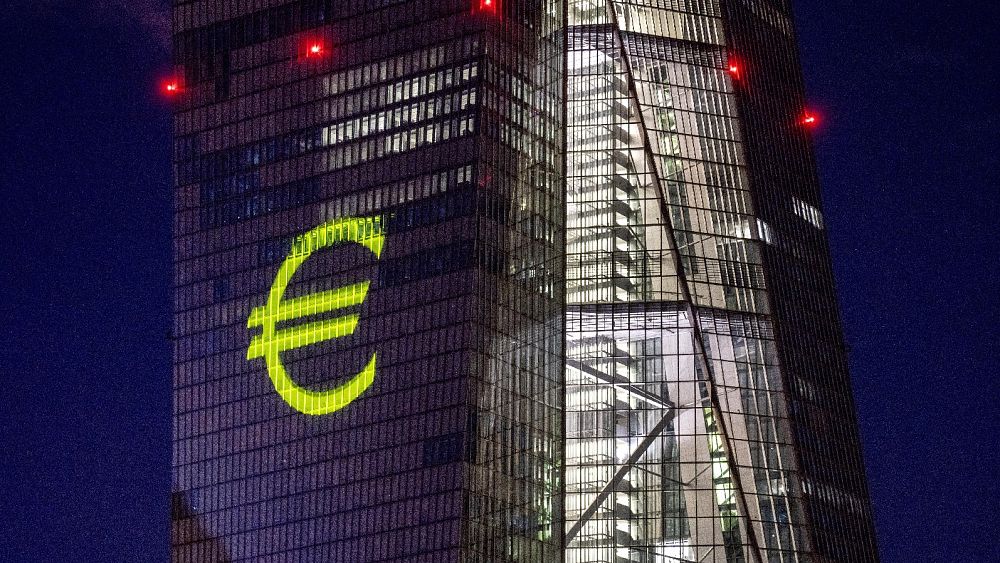
GDP in the EU is now forecast to reach 1.0% in 2023 and 1.7% in 2024, up from a previous forecast of 0.8% and 1.6%.
The European economy continues to show resilience in a challenging global context and is now expected to grow more than expected over the coming two years.
This is due to lower energy prices, abating supply constraints and a strong labour market that supported moderate growth in the first quarter of 2023, dispelling once and for all fears of a recession.
These were the main findings from the European Commission, which presented its Spring Forecast in Brussels on Monday.
This better-than-expected start to the year lifts the growth outlook for the EU economy to 1.0% in 2023 (up from 0.8% in the Winter Interim Forecast) and 1.7% in 2024 (1.6% in the winter), according to the data.
Upward revisions for the euro area are of a similar magnitude, with GDP growth now expected at 1.1% and 1.6% in 2023 and 2024 respectively.
Ireland is expected to post the highest growth of the bloc’s 27 member states with 5.5% this year and 5.0% in 2024. Sweden and Estonia are however seen contracting this year with GDPs of -0.5% and -0.4% respectively. For the Baltic country, 2023 should therefore be the second year in a row with negative growth but it is then forecast to rebound strongly and grow by 3.1% in 2024.
The bloc’s economic powerhouse, Germany, should meanwhile post anemic growth this year of just 0.2%, followed by 1.4% next year. France should fare a bit better this year — 0.7% — and double that the following year.
But it’s not all good news. On the back of persisting core price pressures, inflation has also been revised upwards compared to the winter, and is now forecast to reach 6.7% in 2023 and 3.1% in 2024 with lower forecast for the euro area.
Hungary will be the most impacted, with inflation seen reaching 16.4% this year, followed by Czechia and Poland with readings close to 12%.
Luxembourg, Belgium and Spain should have the lowest inflation readings — between 3% and 4% — this year.
“The EU economy is holding up remarkably well in the face of Russia’s aggression against Ukraine, leading to an upgrade in today’s growth forecast for 2023”, said Valdis Dombrovskis, Executive Commission Vice-President in a statement.
“With energy prices clearly down, governments should be able to phase out support measures and reduce their debt burdens.”
Markedly lower energy prices are working their way through the economy, reducing firms’ production costs. Consumers are also seeing their energy bills fall, although private consumption is set to remain subdued as wage growth lags inflation.
After peaking in 2022, headline inflation continued to decline in the first quarter of 2023 amid a sharp deceleration of energy prices. Core inflation (headline inflation excluding energy and unprocessed food) is, however, proving more persistent.
In March it reached a historic high of 7.6%, but it is projected to decline gradually over the forecast horizon as profit margins absorb higher wage pressures and financing conditions tighten.
“Inflation has proved stickier than expected but it is forecast to decline gradually over the remainder of 2023 and in 2024. And the improvement in public finances is set to continue as energy support measures are progressively withdrawn”, EU Economy Commissioner Paolo Gentiloni told reporters.
The Commission publishes two comprehensive forecasts (spring and autumn) and two interim forecasts (winter and summer) each year. The interim forecasts cover annual and quarterly GDP and inflation for the current and following year for all Member States, as well as EU and euro area aggregates.
The European Commission’s Summer 2023 Economic Forecast will update GDP and inflation projections and is expected to be presented in July 2023.

World
Ukraine not ready to compromise with Russia, says Zelenskiy aide

World
Dutch king swears in a new government 7 months after elections
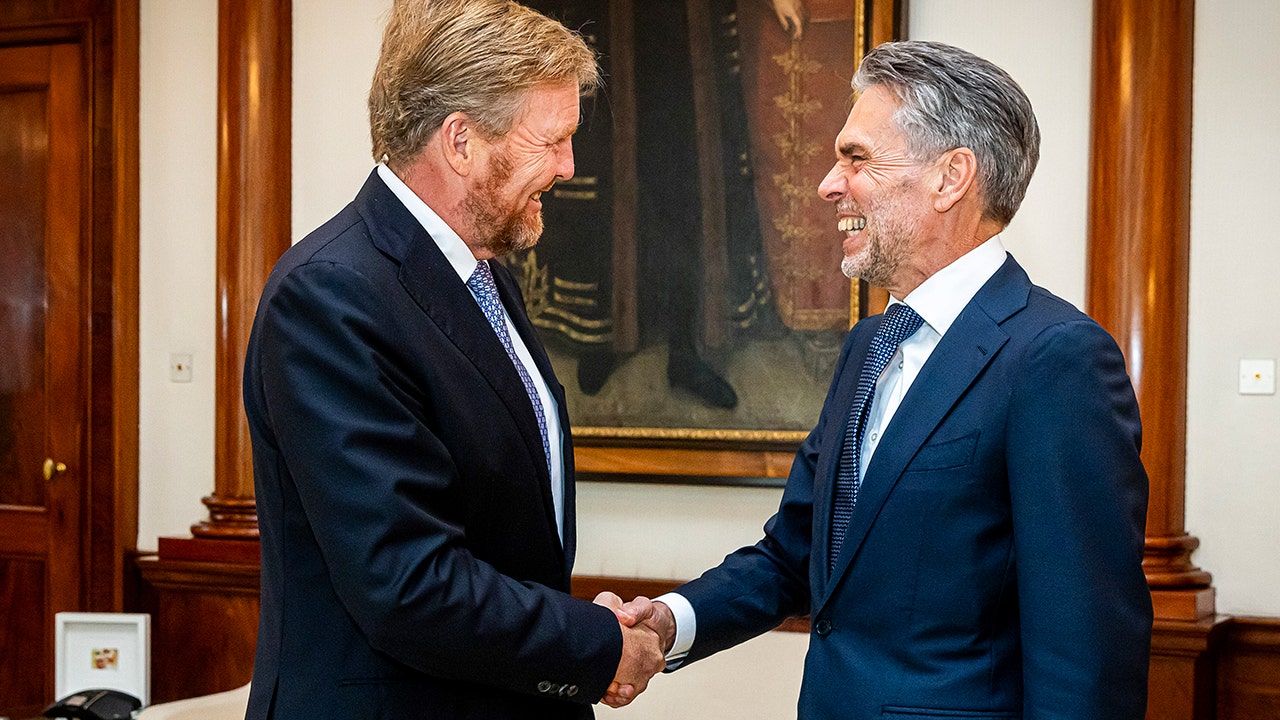
The Netherlands has a different prime minister for the first time in 14 years as Dutch King Willem-Alexander swore in the country’s new government Tuesday, more than seven months after elections dominated by a far-right, anti-Islam party.
Dick Schoof, former head of the Dutch intelligence agency and counterterrorism office, signed the official royal decree at Huis Ten Bosch Palace, saying he “declared and promised” to uphold his duties as the country’s prime minister. The 67-year-old was formally installed alongside 15 other ministers who make up the country’s right-leaning coalition.
FORMER INTELLIGENCE CHIEF NOMINATED AS NEW PRIME MINISTER BY THE NETHERLANDS’ INCOMING GOVERNMENT
The anti-immigration party of firebrand Geert Wilders won the largest share of seats in elections last year but it took 223 days to form a government.
The new coalition quickly faced criticism of its marquee anti-immigration policies — by its own party members, as well as opposition groups. Protesters gathered in front of the palace where the ceremony took place on Tuesday, with one woman carrying a sign asking: “Are we democratically getting rid of our democracy?”
The four parties in the coalition are Wilders’ Party for Freedom, outgoing Prime Minister Mark Rutte’s center-right People’s Party for Freedom and Democracy, the populist Farmer Citizen Movement and the centrist New Social Contract party.
Dutch King Willem-Alexander meets with incoming Prime Minister Dick Schoof, right, in The Hague, Netherlands, Monday, July 1, 2024. (Patrick van Katwijk/Pool Photo via AP)
The formal agreement creating the new coalition, titled “Hope, courage and pride,” introduces strict measures on asylum-seekers, scraps family reunification for refugees and seeks to reduce the number of international students studying in the country.
Opposition from other coalition partners prevented the controversial Wilders from taking the prime minister’s job. During the monthslong negotiations, he backpedaled on several of his most extreme views, including withdrawing draft legislation that would have banned mosques, Islamic schools and the Quran.
For the first time since World War II, the Netherlands is now led by a prime minister who is not aligned with a political party. Before serving as chief of the country’s top intelligence agency, Schoof was previously the counterterror chief and the head of the country’s Immigration and Naturalization Service.
The other government ministers were sworn in Tuesday according to seniority of their departments. One minister, Femke Wiersma who will head the agriculture portfolio, made her declaration in Frisian — the country’s second official language alongside Dutch.
Although the November elections were widely seen as a win for the far right, political youth organizations are already pushing back on the ambitions of the new government. Ahead of the swearing-in ceremony, youth groups from six parties, including two of the coalition partners, called for a softening on asylum plans.
“Although the influx must be limited, it is of great importance that we receive people here fairly and with dignity,” Eva Brandemann, chairperson of the youth wing of the New Social Contract, told Dutch public broadcaster NOS.
Her counterpart in Rutte’s party, which brought down the government last summer over concerns about the number of family reunifications for refugees, said that problems stemmed from administration, not migration.
“The problem will only get bigger if you don’t fix it,” Mauk Bresser, the chair of the People’s Party for Freedom and Democracy youth organization told The Associated Press.
While Bresser thinks the number of refugees coming to the Netherlands should be reduced, his group says those already here should have their claims processed in a timely fashion and be given the opportunity to integrate.
The new agreement slashes the country’s education budget by nearly 1 billion euros — about $1.06 billion — prompting pushback from universities. “Students will not get the education they deserve,” Nivja de Jong, a languages professor at Leiden University, told the AP. She’s part of a group of academics pushing back against the proposed cuts by delivering lunchtime talks about the importance of their research.
The new government will now spend the summer firming the coalition agreement into a governing plan.
The Netherlands isn’t the only country seeing a rise of anti-immigration, far-right views. Last month’s EU elections saw a similar shift, and French voters face a decisive choice on July 7 in the runoff of snap parliamentary elections that could see the country’s first far-right government since the World War II Nazi occupation.
World
Hungary's Orban pushes for ceasefire deal during Kyiv visit
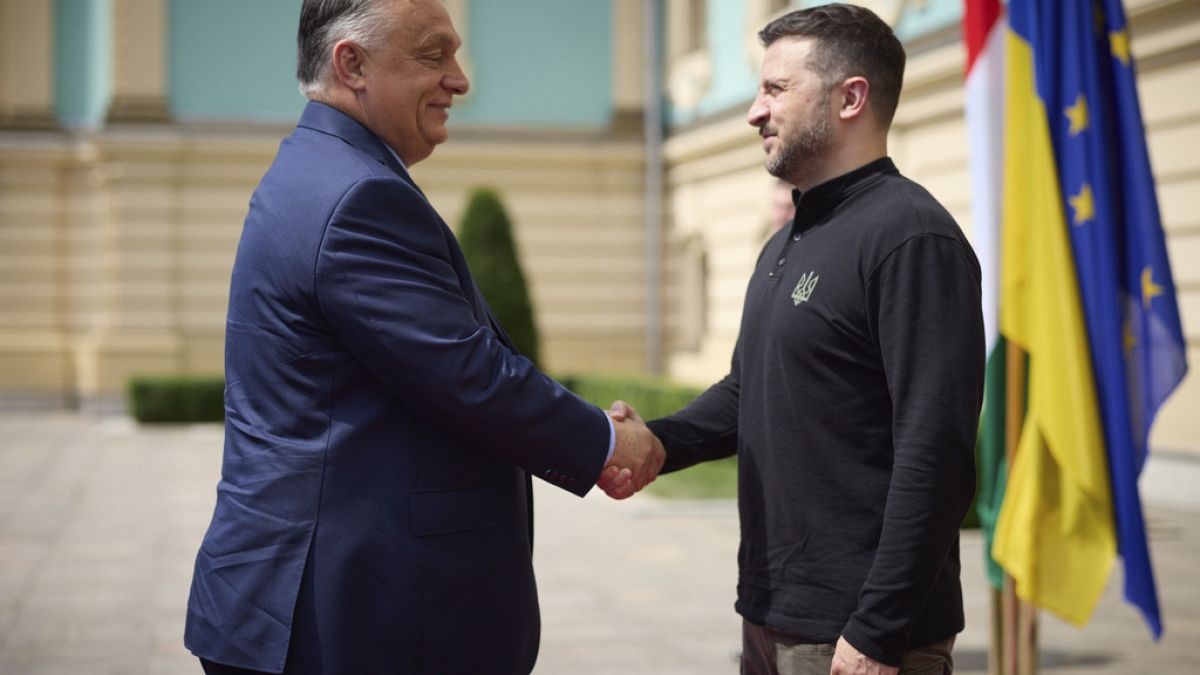
Viktor Orban visited Ukraine’s capital for the first time since Russia’s full-scale invasion in 2022, and offered some suggestions for ending the war.
During his first visit to neighbouring Ukraine since Russia’s full-scale invasion, Hungarian Prime Minister Viktor Orbán told President Volodymyr Zelenskyy on Tuesday that the war was Europe’s “most important issue,” and recommended an immediate cease-fire.
Orban is widely seen as having the warmest relations with Russian President Vladimir Putin among European Union leaders, and his visit was a rare gesture in a tumultuous relationship with Ukraine as Budapest has repeatedly leaned toward Moscow.
The Hungarian prime minister has routinely blocked, delayed or watered down EU efforts to extend assistance to Ukraine and to sanction Moscow over its war, frustrating both Zelenskyy and other EU leaders.
But following talks in Kyiv on Tuesday, Orbán appeared to open the door to a new phase of bilateral relations, saying “the time had come” for such an official visit.
“We are trying to leave the disputes of the past behind us and focus on the period ahead,” Orbán said in brief comments to journalists following the talks. “We would like relations between our two countries to be much better.”
Ukraine and Hungary have had a tense relationship since the war began, with Orbán portraying himself as a champion for peace and calling for an immediate cease-fire and peace talks without expanding on what that would mean for Ukraine’s territorial integrity. He reiterated that call Tuesday, saying it would “provide an opportunity to speed up peace negotiations.”
But Zelenskyy on Tuesday said he was “grateful” for the humanitarian support Hungary had provided to Ukrainian refugees fleeing the war. He also said Hungary could play a role in organising a second iteration of a peace summit that was held in Switzerland last month, which brought together dozens of world leaders.
“Today, we discussed in detail how Hungary can show further leadership in preparing the second summit,” Zelenskyy said, adding that he would like for the event to take place this year.
Orbán’s visit comes the day after Hungary took over the six-month rotating presidency of the EU, a position that has little real power but can be used to set the tone of the bloc’s agenda. Hungarian officials have indicated that they will act as “honest brokers” in the role despite worries from some EU lawmakers that Hungary’s democratic track record makes it unfit to lead the bloc.
During the visit, the Hungarian prime minister acknowledged Russia’s invasion, and said his aim in travelling to Kyiv was “to understand how we could be helpful to Ukraine in the forthcoming six months.”
“The issue of peace is not only important for Ukraine, it is important for the whole of Europe,” Orbán said. “This war, which you are now suffering, has a profound effect on European security.”
The war is “the most important issue for Europe,” he said.
The Hungarian premier, a self-described adherent of “illiberal democracy,” has long been accused by his European partners of dismantling democratic institutions at home and acting as an obstinate spoiler of key EU policy priorities. The bloc has frozen more than €18.6 billion ($20 billion) in funding to Budapest over alleged rule-of-law and corruption violations, and Orbán has conducted numerous anti-EU campaigns depicting it as an overcentralized, repressive organization.
Orbán has also long accused Kyiv of mistreating an ethnic Hungarian minority in Ukraine’s western region of Zakarpattia, a community he has used to justify his refusal to provide weapons to Ukraine or allow their transfer across the two countries’ shared border.
But on Tuesday, Orbán said he sees a “good chance” of achieving progress in the minority community’s affairs and agreed to a proposal by Zelenskyy to set up a Ukrainian school in Hungary for refugees.
“These families need to be taken care of. They need jobs, they need a livelihood, they need security, they need a good school for their children, they need good teachers,” Orbán said.
His visit comes as he seeks to recruit members into a new nationalist alliance that he hopes will soon become the largest right-wing group in the European Parliament. On Sunday, Orbán met in Vienna with the leaders of Austria’s far-right Freedom Party and the main Czech opposition party, announcing the formation of the new group, “Patriots for Europe.”
The trio would need to attract lawmakers from at least four more EU countries to successfully form a group in Europe’s new parliament, which held elections in June. Right-wing nationalist parties across Europe strengthened their position in the elections, but ideological differences over the war in Ukraine and cooperation with Russia have often prevented deeper alliances among some of the parties.
-

 News1 week ago
News1 week agoA Florida family is suing NASA after a piece of space debris crashed through their home
-
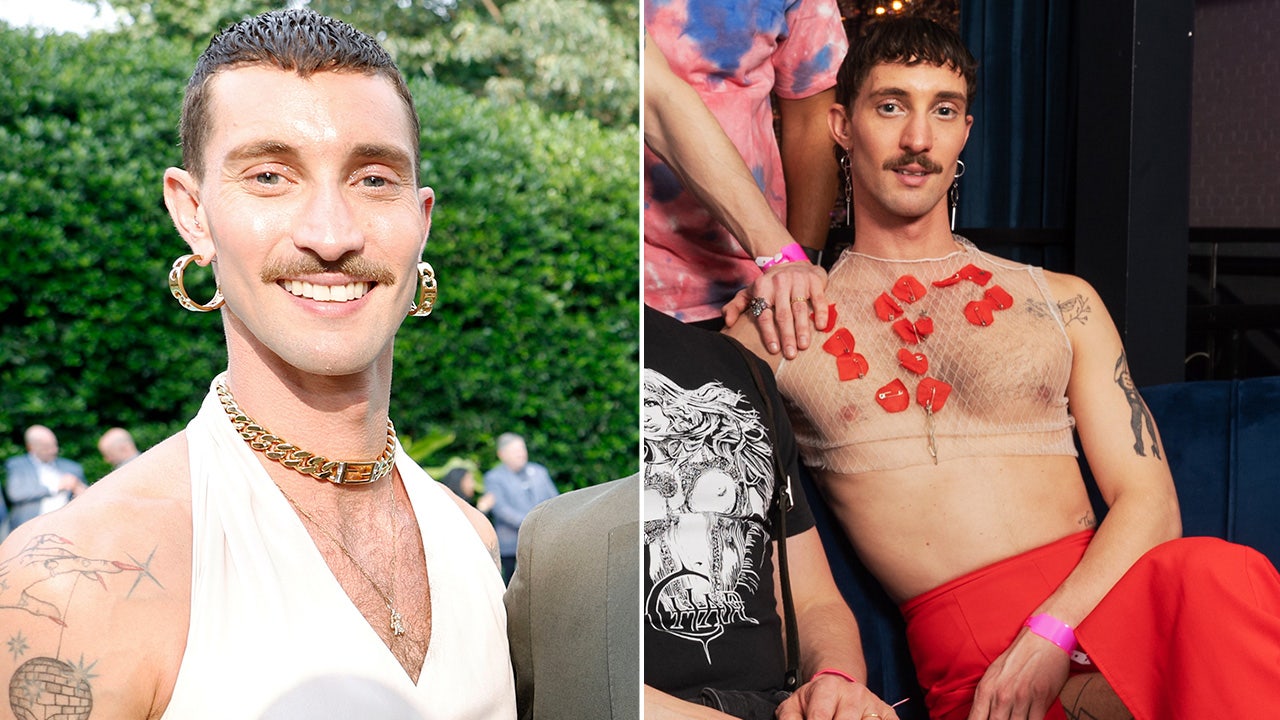
 Politics1 week ago
Politics1 week agoBiden official says past social media posts don’t reflect ‘current views,’ vows to support admin ‘agenda’
-

 World1 week ago
World1 week agoIsrael accepts bilateral meeting with EU, but with conditions
-

 World1 week ago
World1 week agoNetanyahu says war will continue even if ceasefire deal agreed with Hamas
-
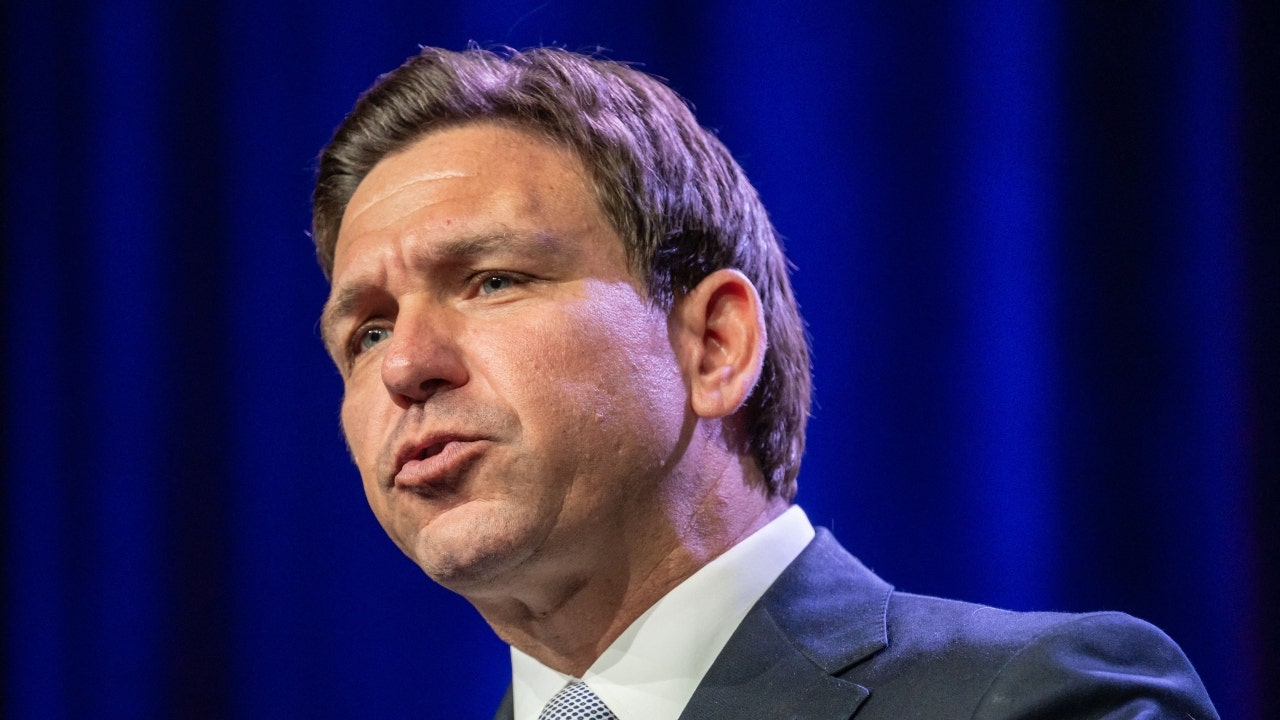
 Politics1 week ago
Politics1 week agoDeSantis signs bill allowing residents to kill bears, vetoes bill that fines slow left lane drivers
-

 News1 week ago
News1 week agoWoman accused of trying to drown Muslim child in Texas in possible hate crime
-

 Movie Reviews1 week ago
Movie Reviews1 week agoI Am: Celine Dion Movie Review: A gut wrenching account of Celine Dion’s quest to find her voice
-
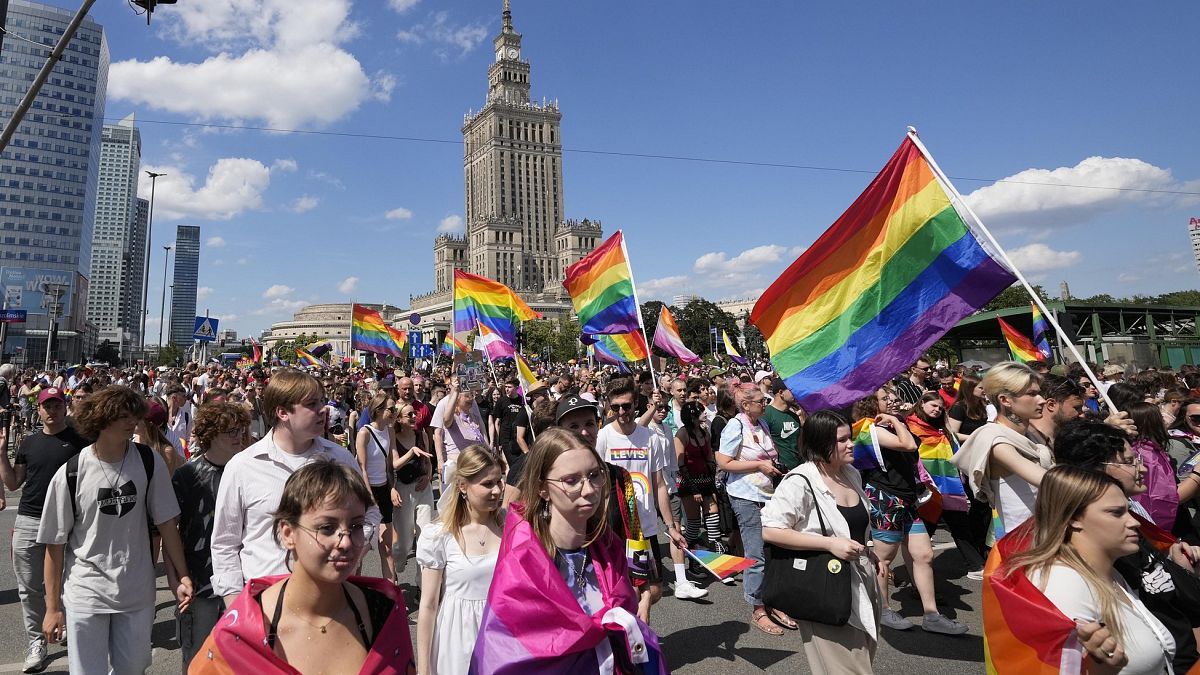
 World1 week ago
World1 week agoOver 10,000 Poles participate in Pride parade in Warsaw


